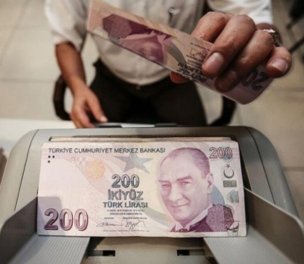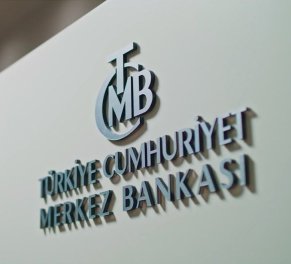Türkiye's Central Bank lowered its interest rate from 12 percent to 10.5, while inflation is havocking the country.
As inflation is an increasing problem globally, the orthodox thought is to increase interest rates. Simply put, a higher interest rate means that the cost of borrowing money increases, meaning that people spend less money, stalling currency devaluation. Consequently, economic growth also comes to a halt. In contrast, a lower interest rate makes borrowing money cheaper. The idea is that lower interest rates encourage consumers and businesses to spend and invest, but this "cheap money" can result in the currency's depreciation.
To curb inflation, the European Central Bank is expected to go for another interest hike, and the Federal Reserve is also increasingly bringing up its interest rates, while Türkiye's Central Bank is doing the exact opposite. This policy is fueled by President Recep Tayyip Erdoğan's unusual interest rate theory.
"The mother of all evil"
In Erdoğan's eyes, high-interest rates are "the mother of all evil." This unconventional belief might be explained by his conservative Islamic background, with interest (faiz) being forbidden (haram) in Islam, and his desire to publish economic growth figures, no matter what. He is also seemingly not done yet with lowering the rate.
On September 28, Erdoğan said on Channel D-CNN Türk's joint broadcast, "I looked at interest rates before inflation. We lowered the interest to 12 percent. After that there is no going up, it will go down even more. This will also reduce inflation. At the last meeting, the Capital Markets Board reduced the interest rate to 12 percent. At the next meeting, I hope that we shall reduce it to single digits by the end of the year."
"Liraization"
Together with these interest cuts, Türkiye's Central Bank is also trying to "liraize" the country. The dollarization of the Turkish economy has been a significant headache for decades. Dollarization means that citizens hold a substantial amount of their assets as foreign-currency-denominated assets. This is a distinctive characteristic of developing countries and transition economies and can affect the effectiveness of the country's monetary policy.
Türkiye's economic history has been plagued by inflation. This created a tradition of investing in assets conceived to be more stable, such as dollars, gold, real estate, and more recently cryptocurrency. It was actually the AKP, led by current President Recep Tayyip Erdoğan, that stabilized the national currency at the beginning of the 2000s. Through multiple reforms, the government managed to bring inflation down to single digits in 2004, which stayed relatively low at 8.5 percent between 2006-2017.
In contrast, during the 90s, inflation was around 80 percent, and double-digit and triple-digit inflation was not uncommon in the 80s. Where the ratio of foreign currency deposits grew between 1990-1995 from 23.2 to 46.1 percent, the 2003-2010 dollarization of the Turkish bank system dropped by 20 percent from 50 percent to 30 percent.
The desire in Türkiye to keep foreign currency like dollars and euros "under the mattress", has been a thorn in the side of its economy.
Politicians for decades have attempted to encourage citizens to invest their savings in lira-type assets. In 2018 President Recep Tayyip Erdoğan compared selling your dollars to joining the front lines "in the economic war".
With rising inflation, the dollarization rate increased again from 25 percent in 2013 to 55 percent at the beginning of 2021. To compensate lira-based savers, Türkiye started to reimburse lira depositors in late 2021. This cooled down the rush to foreign currency and stabilized the lira to some degree.
Russia to the rescue?
The Turkish Central Bank continues to take new steps to boost lira deposits on October 18 this year. The Central Bank raised the ratio of bonds that banks have to hold for foreign exchange deposits and require those with a smaller amount than 50 percent lira deposits to hold even more bonds starting from 2023.
Nevertheless, analysts believe that schemes like the lira saving program introduced in 2021, are dependent on the Central Bank's spending of foreign currency reserves to keep supporting the lira. The Central Bank, therefore, is burning through its reserves. Furthermore, the scheme's impact on the dollarization of Türkiye also seems to be trivial.
According to a recent article in The Economist, Russia can play an increasing role in Türkiye's need for foreign currencies to support the lira, without raising the interest rates. While Türkiye is burning through foreign reserves, Russia, on the other hand, is loaded with hard currency from exporting hydrocarbons. However, as sanctions progressively decrease Russia's ability to get its hands on foreign goods, Turkish exports can be a solution. The NATO member has not yet imposed any sanctions on Russia, and Russian imports can be likely welcome to Türkiye's foreign reserves.
"Election economy"
The question is whether these measures will be enough to halt the economic calamities that have hit the country in recent years. The financial course has increasingly become a key topic in the upcoming elections in 2023, as the current economic state is melting votes for the current coalition. Therefore, fears exist of an "election economy", meaning those in power use public resources to influence voter behavior and postpone the economic demise.
Economist Ümit Akçay stated that the belief that "A crisis has come, and the government will go" may lead to disappointment for the opposition. Through large political projects, the government will be able to curb the disastrous effects of high inflation, at least for the time being.
Projects linked to the "election economy" are, for example, the "social Housing Project", a plan to build around 500,000 housing units in the next five years.
Central Bank's course of policy rate changesIn the period when Central Bank Governor Murat Çetinkaya was removed from office on July 6, 2019 and Murat Uysal was appointed in his place
In the period when Murat Uysal was removed from office as the Central Bank Governor and Naci Ağbal was appointed in his place
In the period when Naci Ağbal was removed from office on March 20, 2021 and Şahap Kavcıoğlu was appointed in his place
* In the months that are not indicated in this table, the policy rate was kept unchanged (The Monetary Policy Committee of the Central Bank convenes every month). |
(WM/VK)






.jpg)

saü.jpg)


.jpg)
.jpg)
.jpg)
.jpg)
.jpg)